Finding a healthier relationship with social media (when you want to quit, but can't)
In a recent poll on Twitter, I asked the creative community whether they were thinking about leaving social media and over a quarter confessed that no, they would be staying but really wish they could go.

Image licensed via Adobe Stock
As illustrator James Wignall puts it: "If it didn't have an impact on my livelihood, I would happily tell social media to get in the sea. It's a blessing and a curse which has morphed over time into a relentless monster."
It seems after the recent introduction of fleets, shopping tabs and dark modes, and following a year of complete chaos, polarisation and unrest, social media has shown its ugly side more than ever. Sure, like James, we love it for the connections and networks we can foster, for building our creative ventures. Some of us have been online for over a decade and count these networks as being key in the success of our careers.
But just lately, it's making many of us anxious and miserable during a time when we're trying to keep our heads above water. You could say, what's the point? Particularly when engagement via Instagram seems to have dropped following its latest update, with no chance of reaching existing audiences for free (or even affordably).
Looking at our own stats on Creative Boom, we get a healthy dose of traffic from Pinterest, LinkedIn, Twitter and Facebook, so it's difficult for our platform to imagine leaving. This is why we sympathise with those of you who want to ditch social media but feel you just can't.
So what's the solution? Here we talk through some techniques to help you better manage your networks without it impacting your career, health or wellbeing.
Understand why we're all hooked
To tackle the enemy, one must understand it. Social media has been designed to be addictive. To keep us hooked. Admit it, how many times do you find yourself checking for 'likes' and 'comments' during an evening of Netflix? It's something many of us do. These apps are like slot machines. Our brain gets a real buzz – a hit of dopamine – when we receive praise from our peers. And so we keep checking, and we scroll and we scroll. Watch the classic TED Talk by computer science professor, Cal Newport to see why we can't put our phones down.
Learn about 'Habit Loops' and how to break them
It's also a matter of habit. As behavioural design psychologist, Lauren Kelly, founder of BehaviourStudio, explains: "Have you ever found yourself on your favourite social app... but can't remember how you got there or why? You are in a habit loop. Habit loops are useful, they save us time and energy. That is until they direct us along unwanted paths. Social media is addictive because of habit loops. You step through cue, routine and reward. When you hear a ping (cue), you reach for your phone (response) and see a 'like' on social (reward).
"To break the loop you have to ask yourself 'What caused me to get here?'. Is it procrastination? Is it your next click after closing your morning alarm? Or are you responding to a ping from the app? Once you know your social media trigger you can start to undo the loop. Know your triggers to build a conscious relationship with social media."
For further reading, Lauren recommends The Power of Habit: Why We Do What We Do in Life by award-winning New York Times business reporter Charles Duhigg.
Reassess your relationship with social media
Consider how you use Twitter and Instagram. Is it really for work? Or are you finding it spills out into your personal life? Are you sharing stuff that needs to be shared? Have the boundaries become blurred? These are important questions to ask. Social media is addictive and designed to keep you constantly switched on.
For Leslie Coutterand, the French TV star shares her awakening to the truth behind a self-absorbed social media lifestyle in this fascinating TED Talk below. Does any of this resonate? When we face ourselves honestly, it can really spark positive change.
Treat it like work
Ok, so we've realised we're looking at our phones too much (how many of you ignore your weekly 'screentime' report?). But if you only use social media to build a network, sell your art, or stay relevant in a competitive industry, then why are you on it constantly?
Treat it like work. Be strict with yourself and ban any access to social media out of "office" hours. If you want to engage with family and friends, do so privately via a messaging app. Over a third in our survey revealed they only treat social media like work and that makes sense, as it changes your mindset, too.
Remove apps from your smartphone
It's all too easy to check Instagram if it's there, on your smartphone. Remove the apps and rely on the desktop only. Use tools to manage and automatically fire out updates. Planonly is a great app for Instagram and Buffer works nicely for everything else.
If you need to, use an emulator to run native mobile apps in your browser. Something like Appetize will do the trick for iOS or Genymotion for Android. There are plenty of other options out there. Do some research and get set up to tackle everything without needing your phone.
Further limit your exposure
Turn off all notifications and schedule a time to look at your social media instead. Give yourself a 'time budget' in one or two chunks each day. If you find yourself spending too much time on Twitter via desktop, use a website blocker like Freedom or StayFocused – these will literally block you from certain sites to help you stay focused.
If you're still looking at social media on your smartphone, set your screen to grayscale, so it's black and white, as colour makes things more addictive. You can do this in the accessibility settings. It really works.
Read more books on the subject
To keep a strong resolve, add more tools to your belt and read books like Digital Minimalism by Cal Newport. He introduces a philosophy for technology use that makes us calmer and happier. He promises that we'll become people who can "hold long conversations without furtive glances at our phones" and "get lost in a good book, a woodworking project, or a leisurely morning run". That we won't obsessively want to document every experience and FOMO will no longer exist.
As the book's description puts it: "Technology is intrinsically neither good nor bad. The key is using it to support your goals and values, rather than letting it use you."
Remember the algorithms
The pain caused by a lack of 'likes' on an Instagram post is understandable but it isn't a reflection of your talent. It's simply the algorithms. The rules always seem to change. Goalposts are constantly being shifted. It's nothing personal, so stop seeing it as a reflection of your work.
Instead, read this insightful guide by digital strategist Ste Davies on social media algorithms. Written earlier in 2020, some of it might not be relevant anymore, as things change so fast. But it will definitely get you thinking about how social media works and why it's difficult for any of us to keep up.
Understanding this simple but important point will help – not just with your own digital marketing, but your mental health, too.
Manage what you're exposed to
Did you know Twitter has a 'Muted Words' feature? Yes, really. Go into Settings, Privacy & Safety and Muted Words, then go crazy. Whether it's 'Trump', 'Brexit' or 'Stoke City FC' (I'm a Vale fan), your home feed will suddenly look warmer and friendlier, helping you to avoid those rants and raves that really, none of us wants to see when we're trying to retain some kind of happy normality.
There's also plenty of 'mute account' options on Twitter and Instagram if someone keeps popping up who you don't want to see, for whatever reason. This allows you to keep following them, so you don't burn any bridges. I appreciate how ridiculous this sounds but people do take things personally if you unfollow or block. The creative community can be a small pond, after all.
Just leave it all behind
Have a serious look at your accounts and followers. Consider this: when was the last time you gained a client or sale via social media? If the answer is never, what are you sticking around for? Could you have a 'break' for a few weeks and see if you can live without it? Perhaps focus instead on improving your website's SEO or finding more traditional ways to maintain contact with clients or reach new ones?
Amber Quinney quit social media for good this year when she realised it's "one of the biggest threats to our brain". Watch the marketing professional's insightful TED Talk below to see her perspective. And why we might be better off without it.
Another thing worth a mention is Jaron Lanier's Ten Arguments for Deleting Your Social Media Accounts Right Now. The world-famous Silicon Valley scientist-pioneer is actually the first who alerted us to the dangers of social media. Here, he explains why its toxic effects are at the heart of its design and then he takes us through ten simple arguments why we should let it go.
Saying goodbye for a while or forever
Fancy a break yourself? Here's how to temporarily deactivate Facebook. Note that you can deactivate your account temporarily and choose to go back whenever you want. But if you're ready to leave completely, here are instructions to delete Facebook permanently.
Instagram's the same, as you have the option to temporarily deactivate or delete. On Twitter, you can deactivate your account but be warned: it deletes permanently after 30 days of no activity.
For more tips on removing or pausing social media accounts, use this super helpful delete or deactivate guide by the UK Safer Internet Centre.
Start something else
If you've quit checking Instagram during the evenings, you might notice you still reach for your phone only to realise you have no reason to. My advice? Find a new hobby. Preferably something you can do with your hands. Draw, stitch, sew, knit, mould, make. Anything to take your mind off social media. Play computer games. Read a book. Call a friend. Start 30-days of yoga with warm and funny Adriene.
It seems absurd to even be writing this tips article in 2020 but I think we all know how addictive and harmful social media can be; it's just that not many of us want to admit it. We feel we simply can't be without our networks – not when other designers and illustrators remain active on them. Not when there are some positives, like the little communities we've built and the friends we've made. We also can't miss out on potential work. So we stay.
And if we stay? Well, we can certainly adopt a healthier relationship with it, edit our feeds, control who and what we see and when – for the sake of our sanity and happiness.




 by Tüpokompanii](https://www.creativeboom.com/upload/articles/58/58684538770fb5b428dc1882f7a732f153500153_732.jpg)

 using <a href="https://www.ohnotype.co/fonts/obviously" target="_blank">Obviously</a> by Oh No Type Co., Art Director, Brand & Creative—Spotify](https://www.creativeboom.com/upload/articles/6e/6ed31eddc26fa563f213fc76d6993dab9231ffe4_732.jpg)









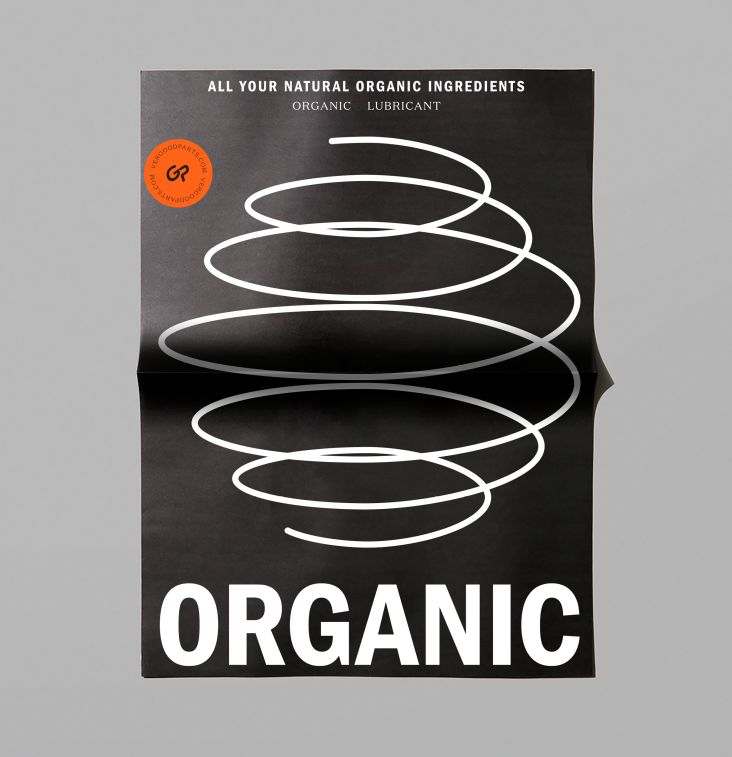
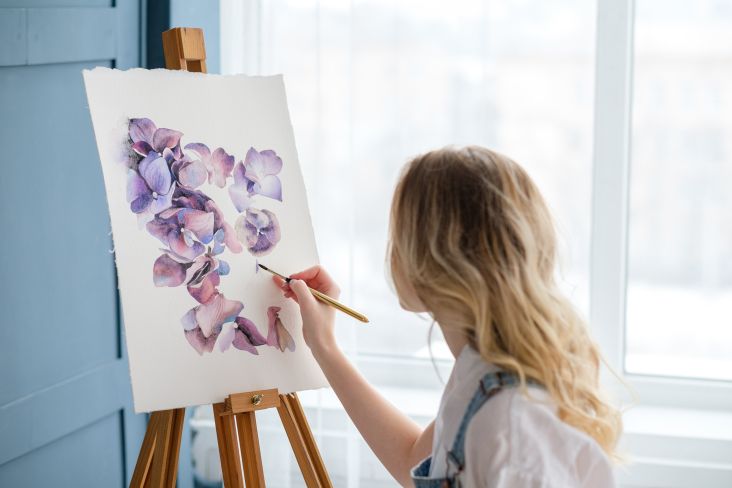
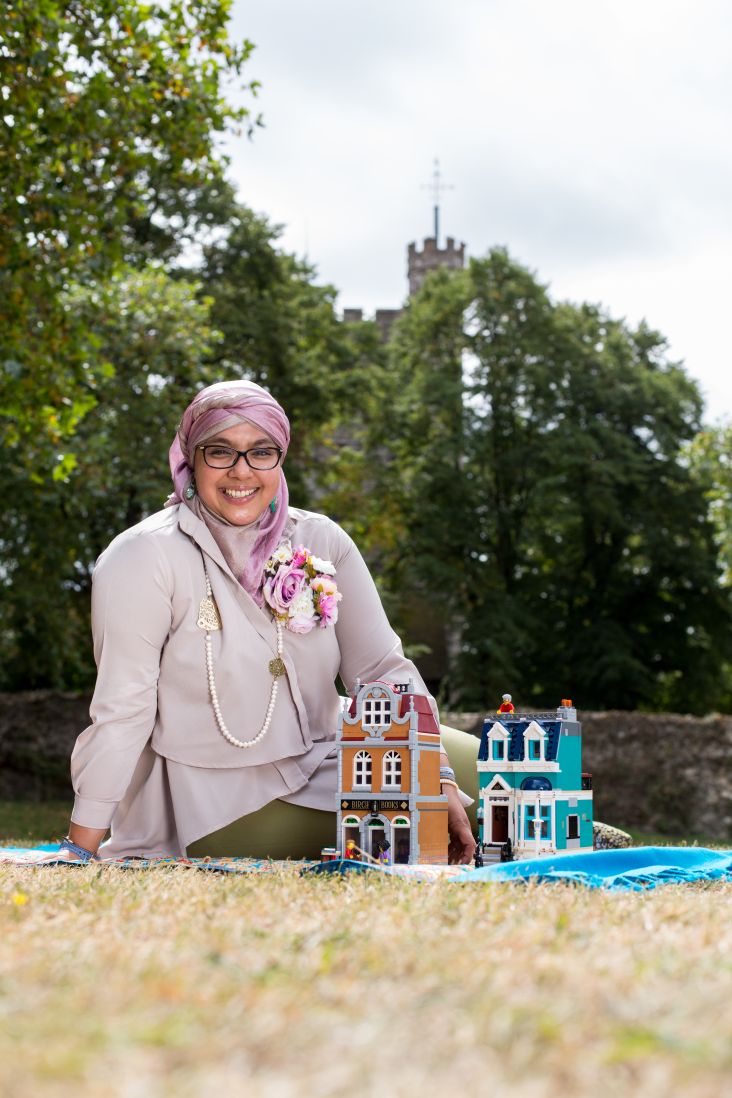
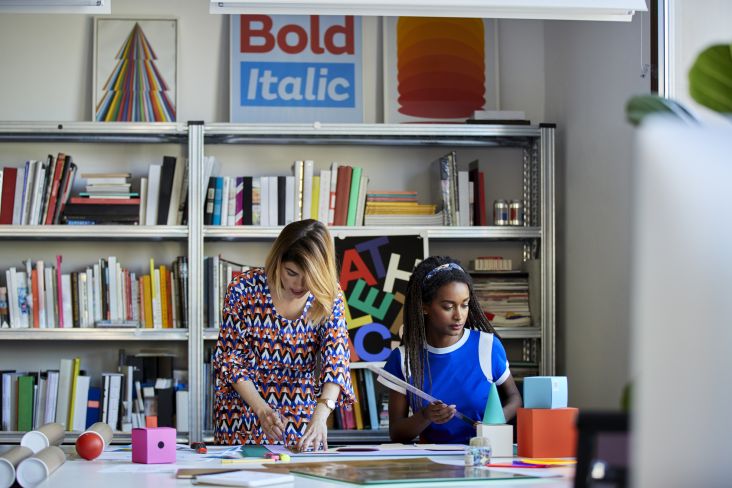
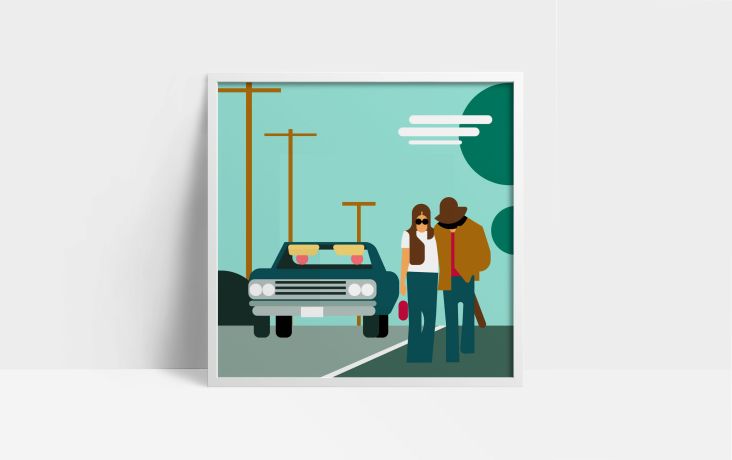
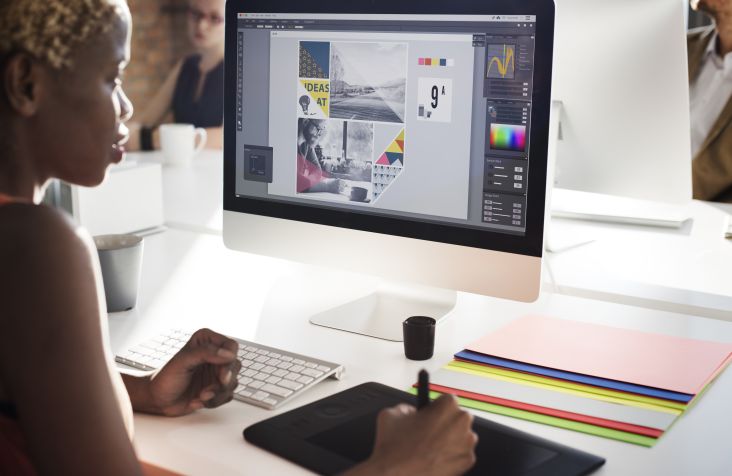
 for Creative Boom. © Creative Boom](https://www.creativeboom.com/upload/articles/88/885afc2954af947d8d1957fb08e948aeef15dae7_732.jpg)
